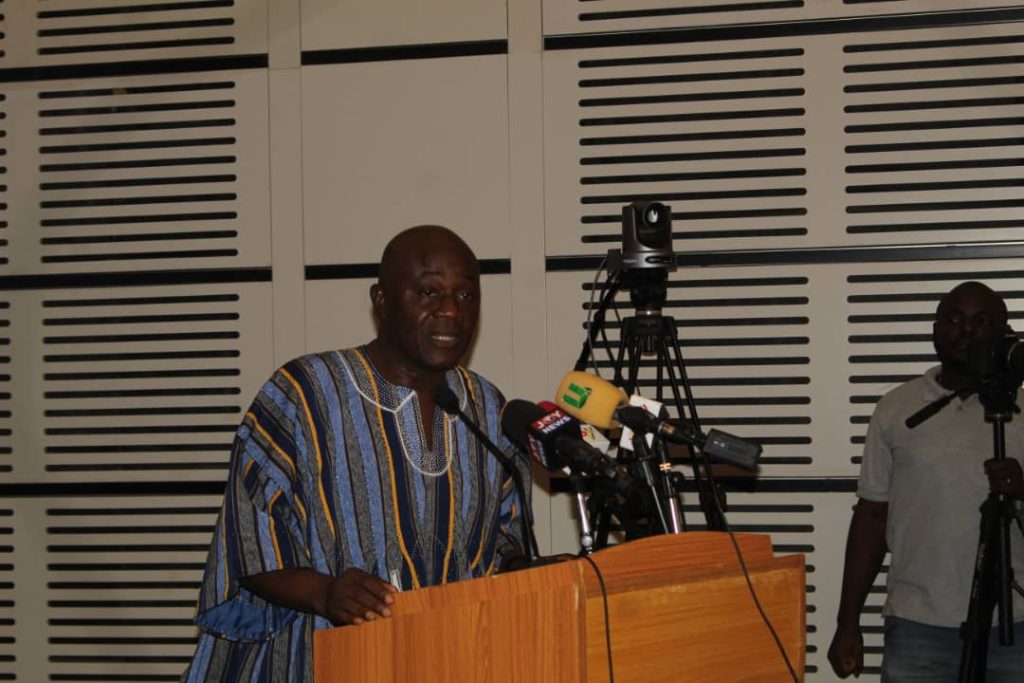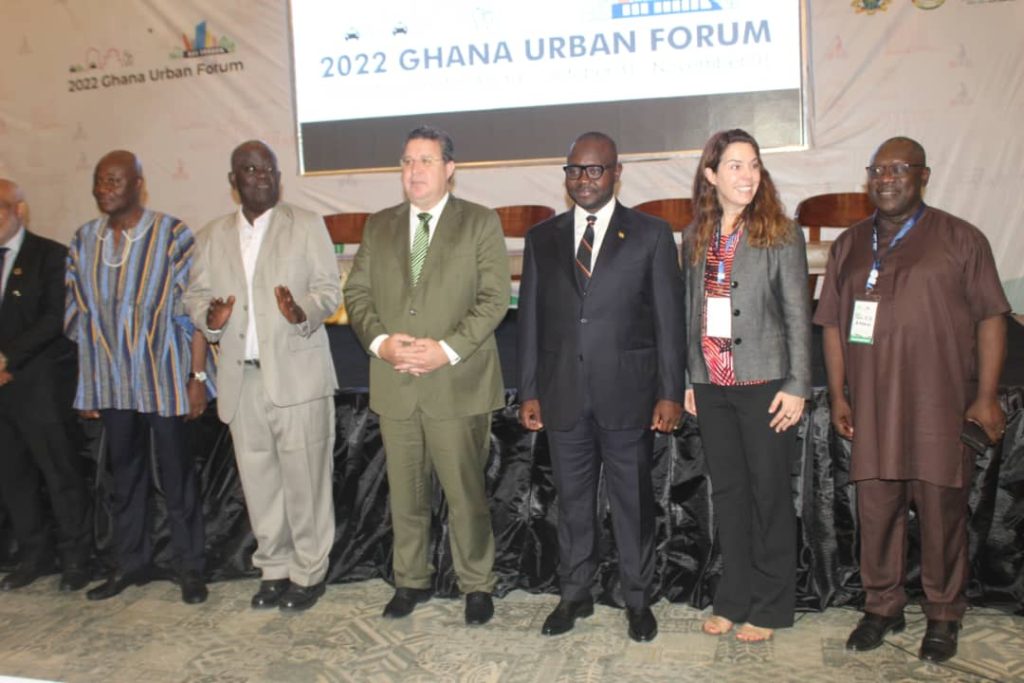By Benjamin A. Commey
Accra, Oct 31, GNA — Mr Dan Botwe, the Minister of Local Government, Decentralisation and Rural Development (MLGDRD) has indicated Government’s determination to achieve the regional and global commitments of building inclusive, safe, resilient and sustainable cities for all.
This, he said, was reflected in the various policies and programmes such as the mandatory national and global periodic reports, which show that progress was being made.
The Minister said this at the opening of a two-day Ghana Urban Forum, in Accra, on Monday.
The forum, organised by the MLGDRD, sought to solicit inputs from the broad spectrum of stakeholders, which include policy makers, government officials at the local, regional and national levels and academia, the platform to examine ways to leverage public resources to support equitable and promote sustainable local economic growth and development.
The theme for this year’s forum is: “Rapid Urban Growth in Ghana: Promoting Effective Urban Planning for Liveable and Sustainable Cities and Towns.”
Mr Botwe said the forum provided a unique opportunity for the country to take stock of the past and determine the way forward for even greater achievements.
He said over the years, government had delivered key infrastructure through support to District Assemblies to implement to improve urban life.
These included the Ghana Secondary Cities Support Project (GSCSP) – a $100 Million project aimed at delivering transformational urban infrastructure in twenty-five (25) Municipal Assemblies (MAs) in the country; the Ghana Urban Mobility and Accessibility Project (GUMAP) and the Greater Accra Resilient and Integrated Development Project (GARID).

Under the GSCSP, Mr Botwe said since its inception in 2018, the project had delivered 117 infrastructural projects, providing facilities such as markets, storm drains, bus terminals, roads, pedestrian walkways and streetlights installation which contributed to local economic development and wealth creation in the Municipal Assemblies.
He added that, an amount of GH₵1,881,553,238.00 had been transferred to the twenty-five (25) Municipal Assemblies to implement several urban flagship sub-projects to promote local economic development and generate employment, while implementation of 66 additional infrastructural projects in the 25 Municipal Assemblies for Urban Development Grant 1&II were at various stages of completion.
Additional credit financing of $145 million have been secured from the World Bank to continue the implementation of the Project in the 25 Municipal Assemblies as well as 10 additional Municipal Assemblies bringing the total of participating Assemblies to thirty-five, he said.
“We believe that through the development and delivery of effective policies and programmes such as these, we will contribute to improving the lives of Ghanaians, especially at this time that we are faced with the triple “C” crisis of COVID-19, Climate Change and Conflict,” he said.
Mr Francis Asenso-Boakye, Minister of Works and Housing said providing affordable housing to the growing urban population remained the priority of his Ministry.
He said although the 2021 Population and Housing Census Report highlighted that the sector had made significant strides, with an estimated level of the housing deficit reducing from approximately two million housing units to 1.8 million housing units, the housing delivery system was yet to meet the needs of the low-to-middle income group.
He reiterated that government was setting up a Housing Authority Bill, which he said was currently with the Attorney Generals Department, to regulate, plan, and implement housing programmes that met the needs and financial aspirations of Ghanaians.
Mr Charles Abani, UN Resident Coordinator in Ghana emphasised the need for urban areas to invest in preparedness to stand unexpected shocks such as the one caused by the COVID-19.
Mr Henry Quartey, the Greater Accra Regional Minister, in a speech read on his behalf, said the Regional Coordinating Council was poised to support the MLGDRD to achieve a strategic national urban policy that met the needs and aspirations of Ghanaians.

GNA